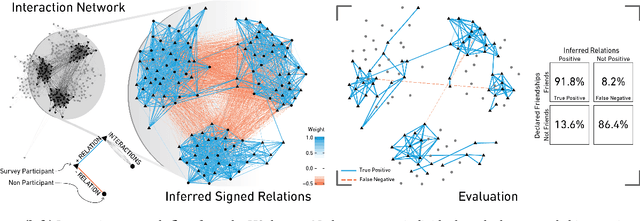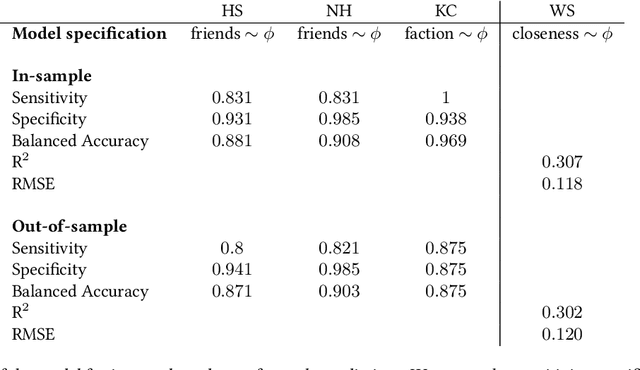Reconstructing signed relations from interaction data
Paper and Code
Sep 07, 2022



Positive and negative relations play an essential role in human behavior and shape the communities we live in. Despite their importance, data about signed relations is rare and commonly gathered through surveys. Interaction data is more abundant, for instance, in the form of proximity or communication data. So far, though, it could not be utilized to detect signed relations. In this paper, we show how the underlying signed relations can be extracted with such data. Employing a statistical network approach, we construct networks of signed relations in four communities. We then show that these relations correspond to the ones reported in surveys. Additionally, the inferred relations allow us to study the homophily of individuals with respect to gender, religious beliefs, and financial backgrounds. We evaluate the importance of triads in the signed network to study group cohesion.
 Add to Chrome
Add to Chrome Add to Firefox
Add to Firefox Add to Edge
Add to Edge